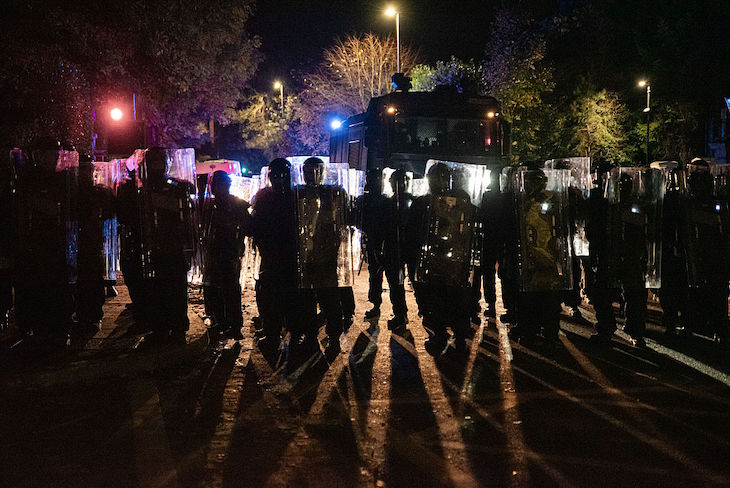Home Secretary Shabana Mahmood’s asylum shake-up has sent the Irish government into something approaching panic mode. The profound new measures, including penalties for those exploiting the system, a 20-year wait for settlement, and returning refugees if their native country is deemed safe, are deeply problematic for Ireland. The government correctly predicts a sharp surge in the number of asylum seekers opting to claim asylum in Ireland, rather than the UK, if these measures become law. It does not take a genius to guess where failed UK asylum applicants will go. Not to mention those who reckon they stand a far greater chance of success in pushover Ireland and decide to skip the UK process and board the next ferry to the emerald isle.
The Irish government admits that close to 90 per cent of asylum seekers have arrived via the UK
The Irish government admits that close to 90 per cent of asylum seekers have arrived via the UK. This has been the case for some years. But for some reason the penny is only now dropping in Dublin that these applicants are not fleeing war and persecution in the UK. They are economic migrants, a fact belatedly acknowledged by Taoiseach Michael Martin, in a rare moment of epiphany.
Justice Minister Jim O’Callaghan announced last week that the Dublin government will introduce changes to the Republic’s asylum rules to keep in lockstep with the UK. He has also outlined changes in a cabinet meeting and said he is ‘committed to ensuring that Ireland is not viewed more favourably than the UK by those seeking asylum.’
Well, good luck with that. Britain is no longer constrained by the EU – we are – and the changes mooted by O’Callaghan reflect that reality. Apart from a hardening rhetoric about ‘sending a clear signal,’ tighter Ts&Cs on family reunification, and tinkering around the edges, the changes would appear to have more impact on legal, rather that illegal, immigration. So next to zero change then.
If a UK minister can credibly say that illegal immigration is tearing Britain apart, EU leaders would be unwise to ignore fracture lines in their own jurisdictions.
If the Irish government was serious about controlling illegal immigration it would have opted out of the EU Migration pact, due to come into effect next year. Ireland and Denmark had the choice to opt out of the protocol which binds states to accept an, as yet undefined, level of asylum seekers each year in solidarity with fellow EU states. Denmark opted out and instead retained its own capacity to deal with illegal immigration under the flag of asylum seeking. The Irish government, always the best boys in Europe, opted in. No proper debate, no consultation, case closed: we were opting in, and that was that.
Ireland’s asylum system is in chaos. Sky-high levels of illegal immigration have led to accommodation stretched to breaking point. Local hotels are being taken away from communities, resulting in a level of discontent that has boiled over into street protests. A number of asylum centres have been targeted. The issue is consistently identified as among the top priorities in opinion polls, yet anyone who articulates genuine concern about the effect on communities is condemned as either ‘racist’ or ‘far right,’ not just by the radical left, but by the political establishment. Deportation orders are sometimes issued but rarely enforced. Self-deportation is the order of the day.
Tánaiste Simeon Harris and Micheal Martin – who rarely missed an opportunity to dismiss concerns that the level of immigration was too high – has finally declared that ‘immigration is too high’ and that we need to have a conversation about it. It was a breathtaking display of cynicism and opportunity, and I suspect, linked to the drop in support for both parties and community unrest.
This unrest spilled over into nights of rioting outside Ireland’s largest asylum hotel last month, after a ten-year-old girl was allegedly sexually assaulted in Dublin. The state bought the hotel near where the incident unfolded for €148million (£130 million) against vociferous objections from the local community.
A 26-year-old man was charged but his identity is protected by Irish law which ensures anonymity for sexual offenders up to the point of conviction. It emerged however, that the suspect was issued with a deportation order in March 2024, but it was never enforced.
However unlikely and unintended, Shabana Mahmood might just have done Ireland a favour by forcing our government to confront the folly of a lax immigration system that has never been fit for purpose.







Comments